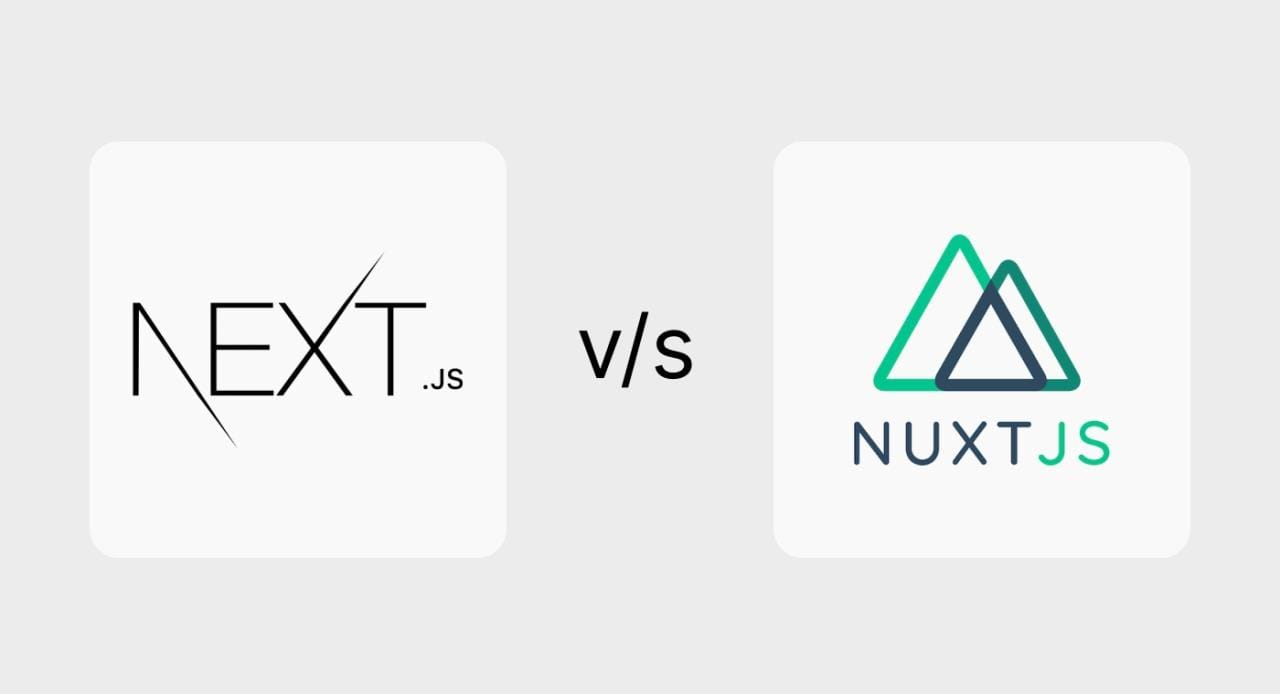
It is no secret that choosing the right tools for a project can make or break it in web development. Suppose you’re working on a high-performance, dynamic web application.
The reasons it needs to be fast, highly scalable, and SEO-friendly will likely lead you to research two of the most popular and powerful frameworks: Next.js and Nuxt.js. Which one would be suitable for your project?
Let’s dive right in and take a look at what each framework has in store for you and where each lands its punches.
What is Next.js?
Next.js is a solid framework developed over React by Vercel, with its focus on server-side rendering and static site generation. This way, developers will be able to develop quick, SEO-friendly applications with most of their configurational complexities taken care of by themselves.
Since 2016, Next.js development has gained critical mass and market attention from developers and companies such as behemoths like Netflix, Hulu, and Twitch.
Features and Benefits of Next.js
Next.js offers an ambitious package to assist developers in building applications based on the React model with server-side rendering. Some of the most important features and benefits of Next.js are as follows:
1. Server-Side Rendering (SSR) and Static Site Generation (SSG): With Next.js, you have the ability to render pages on the server side, reducing the load time and improving SEO.
2. Automatic Code Splitting: Next.js will optimize the speed of loading code, ensuring that only the required resources are fetched into a user’s browser.
3. Dynamic Routing and API Routes: The file-based routing system makes getting routes configured within the application quite easy, and it even has built-in API routes, which makes it easier to create a backend API.
4. SEO Benefits: Next.js provides more leverage at options in terms of SEO as compared to client-side-rendered React applications. It also allows content-rich websites.
5. Rich Ecosystem: It integrates fairly well with Vercel’s deployment platform and other tools like Prisma, TypeScript, and Tailwind CSS.
What is Nuxt.js?
On the other side, Nuxt.js is a framework constructed upon Vue.js, a kind of Next.js, but for Vue developers, that targets providing a seamless development experience for Vue applications, especially for those applications which need server-side rendering and static-site generation. Alexandre and Sébastien Chopin founded Nuxt.js.
Features and Benefits of Nuxt.js
Nuxt.js focuses on streamlining Vue.js development. Here is what it brings to the table.
1. Universal Mode: The mode of Nuxt.js is such that it supports applications to be rendered both on the server as well as the client like Next.js, which improves SEO and load speeds.
2. Automatic Routing: Nuxt.js comes with a very strong, file-based routing system that makes it very easy and efficient to develop a well-structured app.
3. Nuxt Modules: It has more than 160 modules, and it comes as a plug-and-play. There is @nuxt/auth, @nuxt/content, and @nuxt/image.
4. Static Site Generation: Like Next.js, Nuxt also supports static site generation, which helps developers deploy lightning-fast static websites.
5. Integration into the Vue Ecosystem: Nuxt will be designed to fully utilize the power of the Vue ecosystem; thus, Vuex, Vue Router, and Vue plugins can easily be applied.
Both of these frameworks are great for scalability and can handle large projects. It again comes down to a matter of personal preference based on whether you would prefer React or Vue.js to be your library of choice. Each framework also includes SSR as well as SSG, so for SEO-specific projects, either would get you started.
Conclusion
For Next.js or Nuxt.js, it all depends on your existing stack, team experience, and project requirements. Of course, if you’re a fan of React or your team is comfortable with it, Next.js will certainly be the better option: performance, scalability, and many more benefits. Meanwhile, if you prefer the simplicity and versatility of Vue, Nuxt.js is yet another powerful option dedicated to Vue-based projects.
Both of these are high-quality options for the rapid development of SEO-friendly web applications, and in the end, it just depends on the subtleties of each framework and which technology stack best fits your project’s goal.








